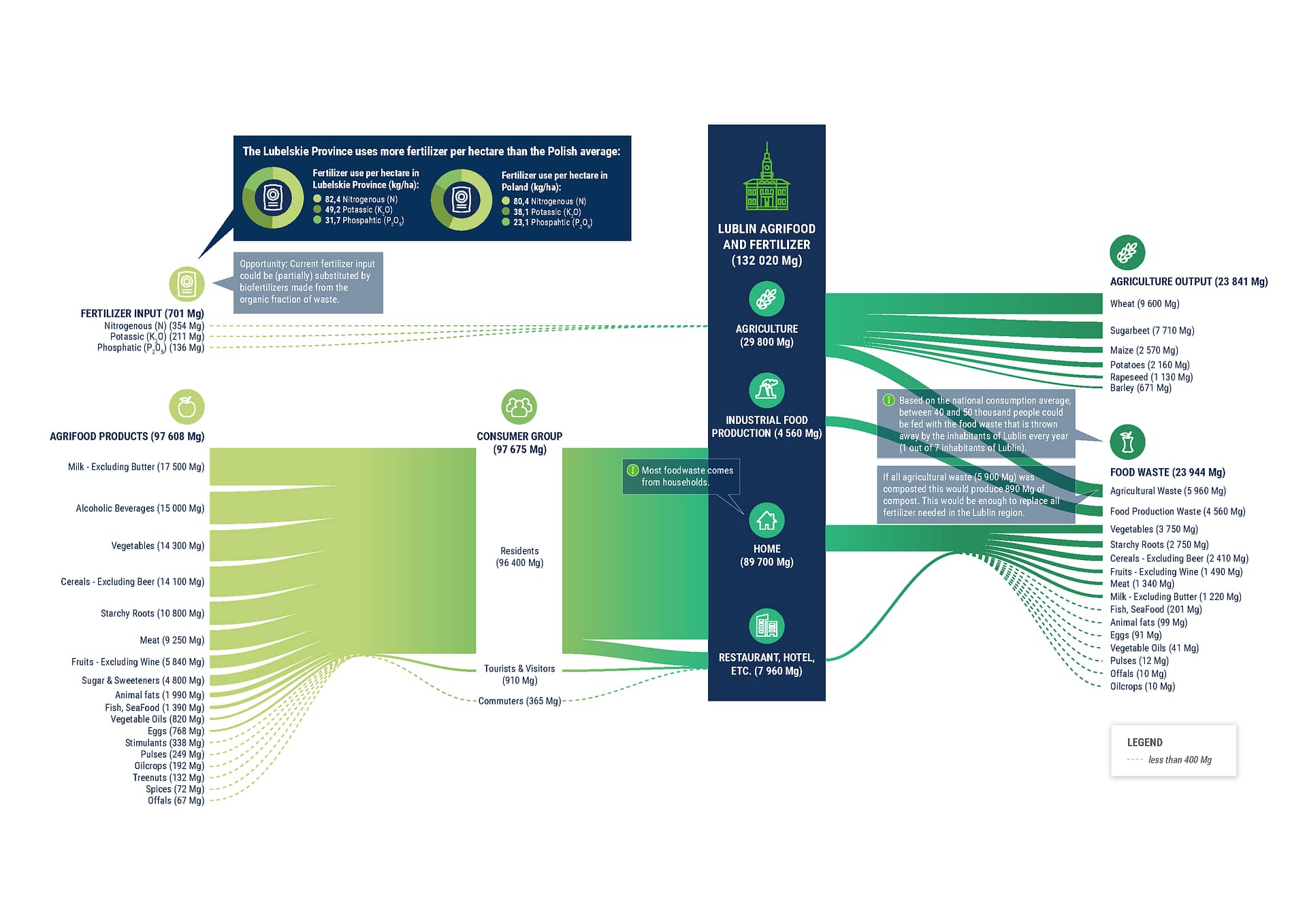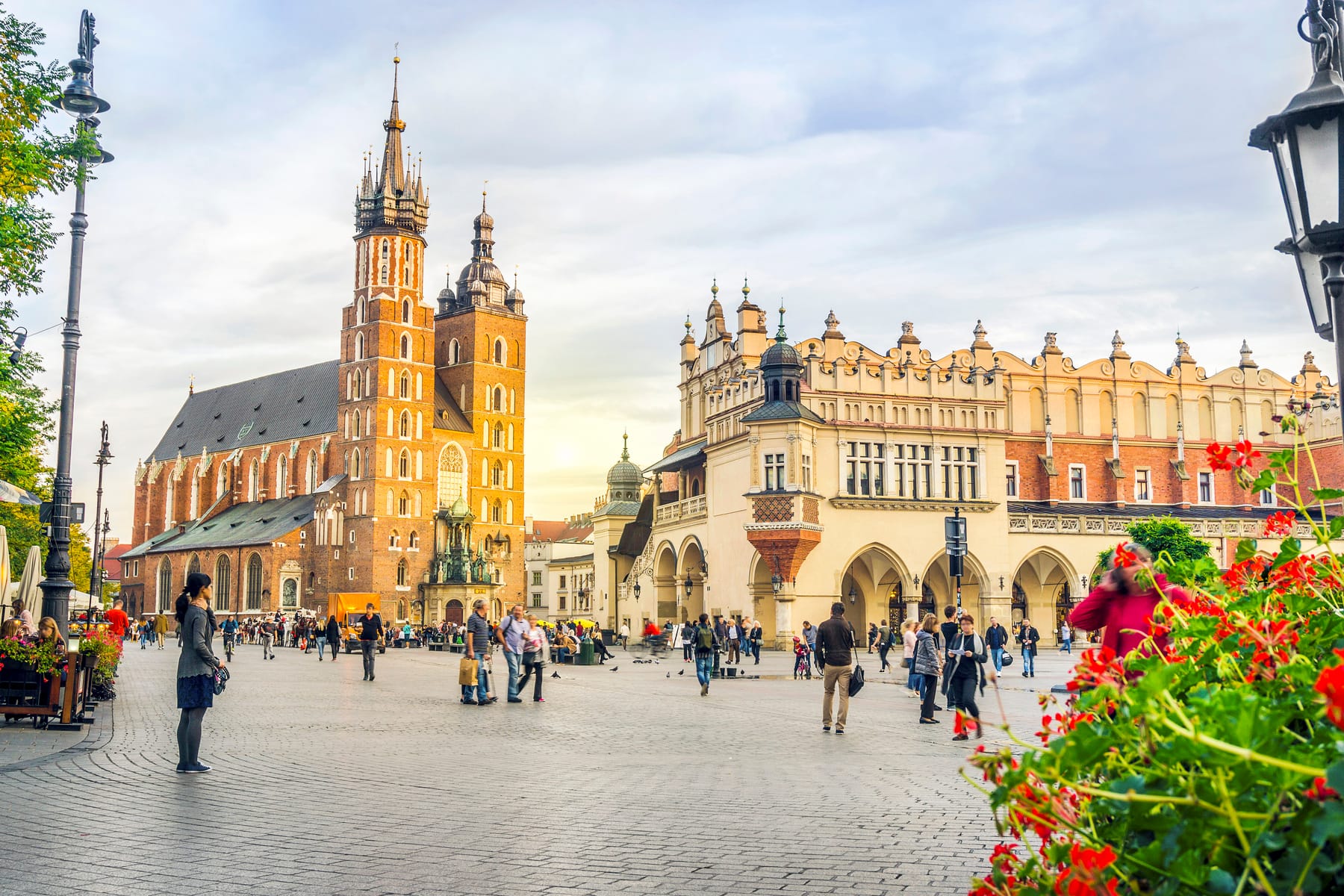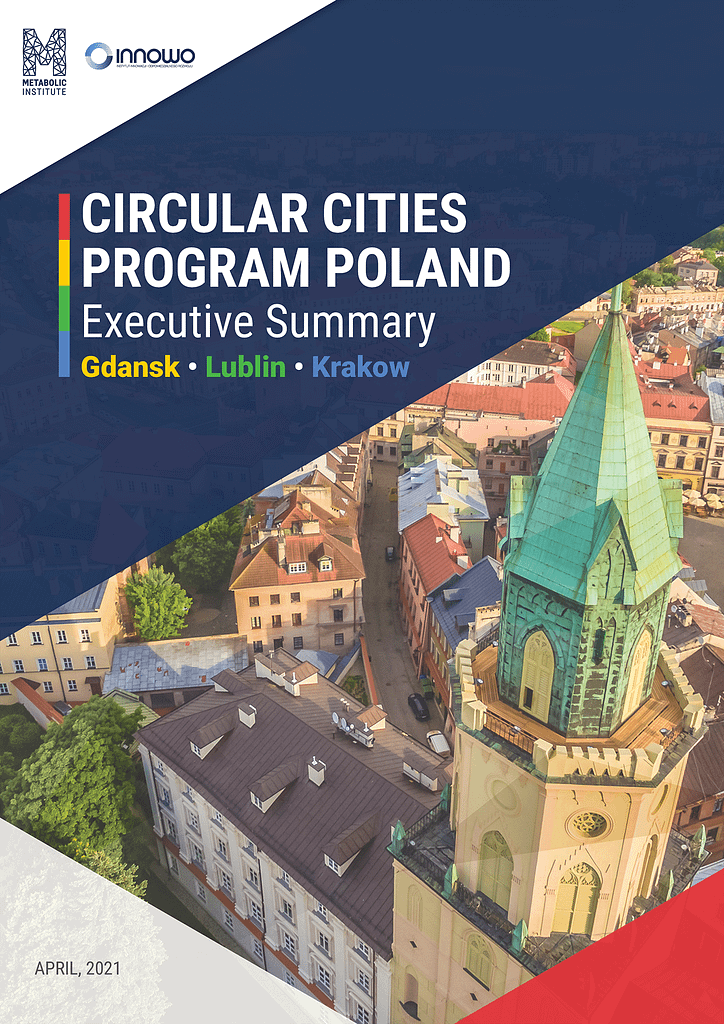Circular Cities Program Poland
Uncovering actionable insights and systemic strategies to drive the transition to a circular economy in Gdansk, Krakow, and Lublin.
During a 1.5 year-long program, Metabolic Institute worked with INNOWO, municipal governments, and other local stakeholders in the cities of Krakow, Lublin, and Gdansk to develop circular strategies tailored to their unique context. We collaboratively expanded on their existing strategies whilst exchanging lessons learned throughout the program.
- Partners: Innowo, The Mava Foundation, The Municipality of Krakow, The Municipality of Lublin, Circular Economy Club – Tricity Chapter
- Funder: The MAVA Foundation
- Date: 2019-2021
Towards cities that promote social and ecological resilience
Cities are our future. They are the drivers of the global economy, centres of creativity, diversity, and interaction – and they are home to the majority of the global population. Growing cities and our current economic system rely heavily on our planet and the natural resources it holds. Construction and consumption in cities is fueled by the extraction of virgin materials, freshwater sources, food production, and energy production. This comes at the cost of the natural systems that support our ability to live on the planet, resulting in unfavorable conditions most heavily affecting already vulnerable communities inside and outside our cities.
Cities can play a leading role in accelerating a sustainable economy by leveraging their unique characteristics to propagate effective strategies, financial opportunities, policy changes, and infrastructure solutions that drive implementation and catalyze surrounding regions, and inspire other cities.
A common approach for three very different cities
In a 1.5 year-long program, generously funded by the MAVA foundation, Metabolic Institute worked with our Polish partner Innowo and groups of stakeholders in the cities of Gdansk, Krakow and Lublin to kickstart the transition to a circular economy. Every city is different. Our unique approach recognizes that cities vary in their expertise, to what extent sustainability is integrated into the policy agenda, and the granularity of data available on environmental factors. For each city:
- We uncovered actionable insights and leverage points through an extensive context analysis and sector-based analysis (Waste, energy, water, agrifood and construction) in each of the three cities,
- Brought together stakeholders from the public and private sector, community organizations, and academia to build awareness and local networks and formulate a vision with concrete goals and measurable KPIs,
- Translated the citywide analysis to the more granular neighborhood scale to provide insight on the different roles different neighborhoods can play in achieving the city-wide vision and goals,
- Developed a tailored toolkit of immediate circular strategies and examples that can help build the innovation ecosystem needed to land the circular economy and catalyze cross-sector collaboration.
Inputs for the Lublin 2030 strategy
Lublin’s municipality is in the process of collecting insights from local residents to finalize the Lublin 2030 Strategy. Based on our current state analysis, we developed strategic directions that the municipality can take on to transition towards a circular economy. Besides using these findings as input for the long-term Lublin 2030 strategy, Lublin’s municipal government has immediately started organizing around some of the proposed actions. For example, the city is initiating a program with local stakeholders to make local academic institutions more circular. In addition, the program strengthened cross-departmental collaboration within the municipality by convening different programs around the topic of the circular economy.
A current state analysis, vision lines and inspirational examples
The municipal government has been involved in generating a deeper understanding of where the city stands now. Building upon extensive momentum on the ground in Gdansk, the report provides actionable examples of how initiatives in other cities are working towards a circular economy from the bottom-up. As a result of the program local stakeholders convened a cross-disciplinary driving group, The CEC Tricity Chapter, and laid the foundation of a regional circular economy network that can kickstart the local transition. Specific potential lies in organising around Gdansk’s booming construction sector, as well as in the strong bottom-up network that can potentially draw sustainable development funds to the region.
A current state analysis, action toolkit and roadmap
In collaboration with the municipality of Krakow, we identified a set of 24 actions to kick-start a circular economy. Building upon the existing sustainability ambitions in the city and the active role of the municipality in the process, the actions are oriented to spearhead systemic change in the coming years. The actions require a strong network of collaboration between the private sector, academia and civil society, driven by strong leadership from the local government. A map of Neighborhood typologies provide insight to the role different neighborhoods can play in landing the circular economy in the city, landing the actions in the physical space.










Director of Sustainable Cities & Regions
ANY QUESTIONS?
For more information about this project, please get in touch.






